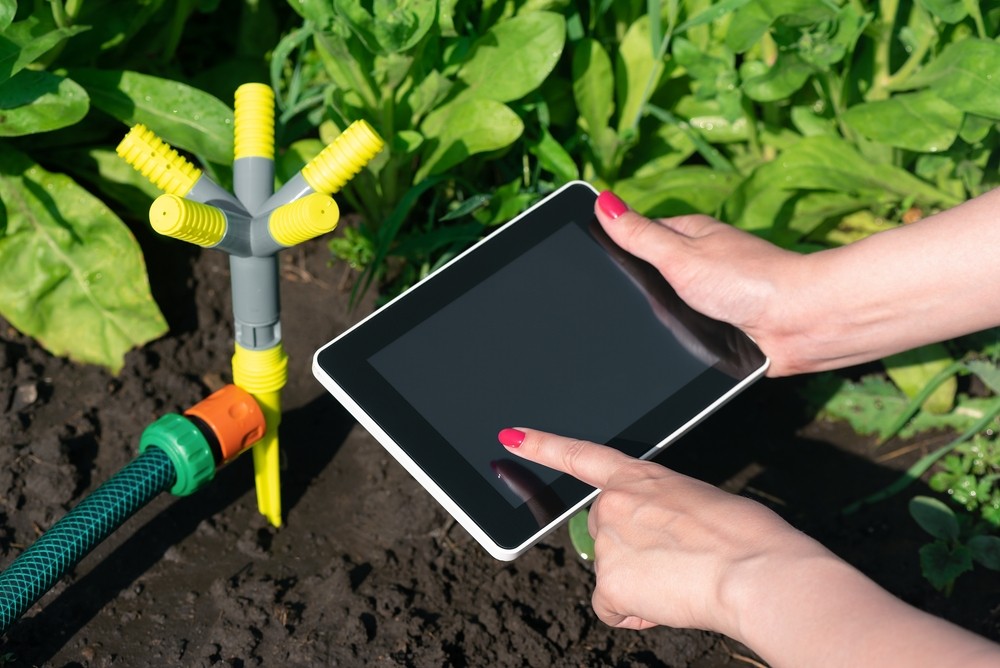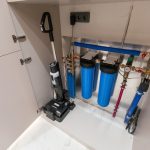Smart sprinkler systems have changed the way many homeowners manage their lawns and gardens, offering a convenient, efficient, and eco-friendly solution to one of the most time-consuming aspects of home maintenance. These systems have become increasingly sophisticated, catering to the needs of both tech-savvy individuals and those looking for simple automation. For consumers looking to save money or make an informed buying decision, understanding the benefits, features, and considerations of smart sprinkler systems can prove invaluable.
Why Choose a Smart Sprinkler System?
A smart sprinkler system offers several advantages over traditional sprinklers. Conventional systems often lack the ability to adjust to changing weather conditions, potentially leading to water wastage or under-watering. Smart sprinklers, however, utilize sensors and a variety of data inputs to optimize watering schedules. Here are some compelling reasons to consider investing in a smart system:
- Water Conservation: Smart sprinkler systems are designed to use water efficiently. By analyzing weather forecasts and moisture levels, they can make real-time adjustments. This feature alone can save thousands of gallons of water annually.
- Cost Savings: Reduced water usage translates directly into lower utility bills. By avoiding overwatering, these systems can prevent unnecessary damage to plants and landscaping.
- Convenience: Once set up, these systems require minimal intervention. Homeowners can often manage them remotely via smartphone apps.
- Environmentally Friendly: With a focus on conservation, smart systems can help reduce the environmental impact of household water usage.
Key Features to Consider
When evaluating smart sprinkler systems, it’s crucial to understand the features that can maximize their benefits. Here are some elements to consider:
- Weather Integration: The ability to integrate with local weather forecasts is vital. Such integration ensures that watering schedules adjust automatically during rainy periods or droughts.
- Mobile Connectivity: Most systems offer mobile apps that allow users to control the system from anywhere. Features might include turning the sprinkler on or off and viewing usage reports.
- Zone Customization: This allows for different watering schedules and amounts for separate areas of your garden or lawn, ensuring that each type of plant receives the appropriate care.
- Soil Moisture Sensors: These sensors provide real-time data about the moisture content of the soil, helping the system determine whether additional watering is necessary.
- Smart Integration: Some systems can integrate with home automation platforms like Amazon Alexa or Google Assistant, allowing for voice-activated control.
- Alerts and Notifications: Systems that provide real-time alerts can notify users of system malfunctions, leaks, or unusual weather patterns affecting the scheduled watering.
Popular Smart Sprinkler Systems
Several smart sprinkler systems have gained popularity due to their reliability, features, and customer support. Below is a list of some of the most recommended options:
- Rachio Smart Sprinkler Controller: Known for its user-friendly app and superior weather intelligence, Rachio offers a highly customizable watering experience, perfect for various lawn sizes.
- RainMachine Touch HD: With a robust build and a touchscreen interface, RainMachine provides comprehensive weather data integration, making it an attractive option for those who prefer interactive controls.
- Netro Smart Sprinkler Controller: Ideal for the conservation-focused consumer, Netro continuously analyzes environmental data to optimize watering schedules, significantly reducing water usage.
- Orbit B-hyve: This model stands out for its affordability without compromising essential features such as weather adjustment and smartphone connectivity.
Installation and Setup
Setting up a smart sprinkler system can vary in complexity, depending on the model and the user’s technical prowess. However, most systems provide straightforward installation guides and customer support to assist:
- Indoor vs. Outdoor Controllers: Determine whether your system requires an indoor or outdoor setup. Outdoor models typically come with weather-resistant casings.
- Wi-Fi Connectivity: Position your controller where it can reliably connect to your home Wi-Fi network for seamless operation.
- Cable Management: Existing sprinkler wires must connect to the new system, so ensure they’re in good condition, and label them during disassembly for easy reinstallation.
- Initial Programming: Once installed, use the accompanying app or interface to configure zones, schedules, and other settings according to your garden’s specific requirements.
Maintenance and Troubleshooting
Despite being highly automated, smart sprinkler systems require occasional maintenance to function optimally:
- Regular Software Updates: Check for firmware updates regularly to enhance features and fix potential bugs.
- Clean Sensors and Nozzles: Remove debris and dirt from sensors and nozzles to prevent blockages and ensure accurate readings.
- Winterization: In regions with harsh winters, consider winterizing your system to prevent pipe freezes and damage.
- Troubleshooting Connectivity Issues: If the system loses Wi-Fi connection, refer to the manual for resetting procedures or contact customer support for assistance.
Choosing the Right System for Your Needs
Selecting the right smart sprinkler system requires assessing your specific needs and the layout of your property. Here are some questions to consider:
- Size of Lawn/Garden: Some systems are better suited for expansive lawns with many zones, while others serve smaller areas.
- Budget Constraints: While initial costs might be higher for smart systems, factor in the long-term savings on water bills and potential rebates for water-efficient devices.
- Technical Preferences: Consider whether you prefer a system with manual control options or entirely app-based operation.
- Integration with Existing Smart Devices: If you already use smart home devices, choosing a compatible sprinkler system can streamline management and enhance automation.
Smart sprinkler systems offer a combination of convenience, efficiency, and environmental consciousness, making them a worthy investment for any homeowner looking to optimize their watering practices. By carefully evaluating the available features and aligning them with personal needs, consumers can enhance their property’s green spaces while contributing to water conservation efforts. With the right system, you can truly set and forget your lawn care, knowing that the technology will handle watering with precision and care.



